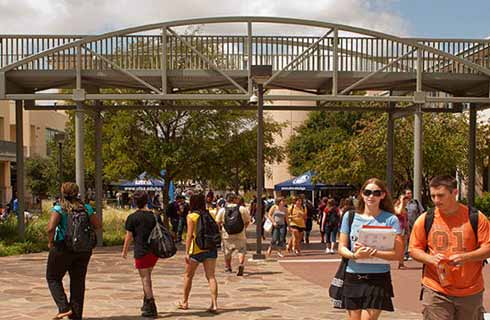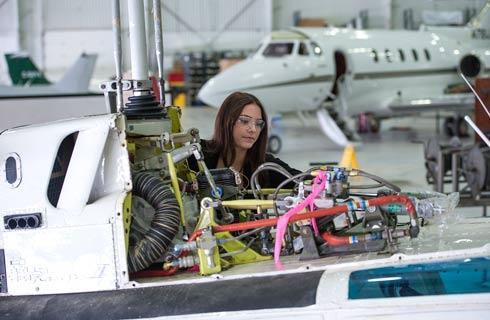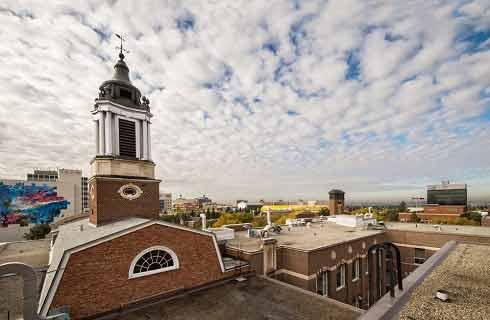理学士(荣誉)考古学
BSc (Hons) Archaeology

学历文凭
Bachelor Degree with Honours

专业院系
Archaeology

开学时间

课程时长

课程学费

国际学生入学条件
IDP—雅思考试联合主办方

雅思考试总分
6.5
- 雅思总分:6.5
- 托福网考总分:80
- 托福笔试总分:
- 其他语言考试:Pearson Academic PTE - 62 (with no less than 59 in each Communicative Skill) Cambridge C2 Proficiency or C1 Advanced - 176 with a minimum of 169 per component
CRICOS代码: F402
申请截止日期: 请与IDP联系 以获取详细信息。
课程简介
Combine study of the ancient world with modern scientific techniques.,This dynamic course brings together the discipline of the scientific laboratory with the excitement of fieldwork. You will get an overview of the world of archaeology and a thorough grounding in the scientific techniques used to explore the past. Depending on your module choices you may receive professional accreditation from the Chartered Institute for Archaeologists. With access to state-of the-art laboratory facilities, and outstanding training from some of the world’s leading archaeological scientists, you will have the opportunity to learn the cutting-edge techniques used in archaeology. These include: DNA and isotopic analysis, Geographical Information Systems, geoarchaeology, archaeobotany and the analysis of human and animal skeletal remains. By the end of your degree you will have a comprehensive set of science and social science research skills for archaeology, but also a range of transferable skills relevant to many careers, including data management and analysis, critical thinking and writing, and written and oral presentation. All BSc Archaeology students can take part in archaeological fieldwork in the UK and abroad, engaging with departmental research projects and learning further archaeological and transferable skills. The degree culminates in a research project, or dissertation, which you will develop under the guidance of a member of staff, many of whom are experts in the field.You will develop your knowledge through a series of Scientific Methods in Archaeology modules, and build on these with Advanced Skills and Specialised Aspects of Archaeology options. Classroom teaching is supported by small-group tutorials and lab-based practicals. These will guide you in developing your expertise in ancient landscapes and environments, past climate change, diet, migrations, mobility, health, animal-human interactions, scientific dating, materials science, and conservation techniques relevant to archaeological objects.Course structureYear 1 modulesCore modules:Introduction to Archaeological Methods provides you with a grounding in a range of scientific methods and techniques used in contemporary archaeology.Archaeology in Britain gives you a wide-ranging introduction to how archaeologists work, how sites are found and excavated, how archaeological information is generated, theorised and interpreted, and the issues facing archaeology today. It will give you the basic study skills for library work, essays, tutorials and computing. The module also gives a brief overview of British archaeology by period, from the Neolithic to the present day.Archaeology Practicals introduces field and laboratory techniques for the recording and analysis of primary materials, sites and monuments, using group work wherever possible.Scientific Methods in Archaeology 1 provides a grounding in a range of scientific methods and techniques used in archaeology today. It will help you develop a critical awareness of the potential and limitations of data and its analysis when applied to archaeological problems.Optional modules:In recent years, optional modules have included: Discovering World PrehistoryCities in AntiquityMedieval to Modern: An Introduction to the Archaeology of the Medieval to Post-Medieval WorldAncient Civilisations of the EastFieldwork You will undertake six weeks of compulsory fieldwork – three weeks at our field school in Year 1, and three weeks at an excavation of your choice in Year 2.Year 2 modulesCore modules:Professional Training (requires three weeks of fieldwork in the summer before starting Year 2). This module uses practical experience to give you an understanding of the objectives and operation of a fieldwork project and how data and material produced by archaeological projects is processed.
相关申请
 预科
预科 奖学金
奖学金 实习机会
实习机会 在校学习
在校学习 跨境学习
跨境学习 校园授课-线上开始
校园授课-线上开始 在线/远程学习
在线/远程学习
开学时间&学费
学费信息仅供参考,请与IDP联系以获取详细信息
| 开学时间 | 时长 | 学费 | 地点 |
|---|
学校排名

世界排名114
数据源:
泰晤士高等教育世界大学排名
关于杜伦大学

杜伦大学创建于1832年,是英国历史最悠久的大学之一。杜伦大学建于中世纪世界遗产地旁,有着悠久的历史和现代价值观,是一座备受推崇并拥有前瞻性思维的学府。如今,来自世界各地的18000多名学生在达勒姆就读。杜伦大学有28个系,开设有200多门本科和研究生课程。该校很多教师都处于各自领域的最前沿。教职人员利用出色的研究和学科知识为所有学生提供优质的教学。目前,杜伦大学有17个学科在全球大学中名列前100位,其中九个学科名列前50位。除了在学术上的卓越成就,该校还努力为学生提供支持,帮助他们在毕业后获得有意义的工作。其毕业生就业能力目前在世界上排名第88位。该校的就业与创业中心致力于培养学生的专业技能,并提供商业人脉和工作机会。杜伦大学目前在2020年《QS世界大学排名》中名列第78位,稳稳跻身全球大学百强之列。该校为教职人员和学生创造了一个热情友好的多元化社交环境,并因此而倍感自豪。目前,杜伦大学28%的在校生为非英国本土学生。大学社区处在独一无二的达勒姆求学体验的核心位置,达勒姆的每个社区均是多元化、多学科的社区,由来自不同背景和文化的学者、学生和工作人员组成。有了这些社区,加上该校杰出的支持体系,学生们一定会有宾至如归之感,并可参与大量精彩的课题。
本校相关课程

博士神学与宗教
学历文凭
Ph.D.
开学日期
课程费用总额


MLitt神学与宗教
学历文凭
Masters Degree (Taught)
开学日期
课程费用总额


博士学位论文博士学位
学历文凭
Ph.D.
开学日期
课程费用总额


理学硕士心理学研究
学历文凭
Masters Degree (Research)
开学日期
课程费用总额


研究心理学硕士
学历文凭
Masters Degree (Research)
开学日期
课程费用总额


博士哲学
学历文凭
Ph.D.
开学日期
课程费用总额

其他相关课程

MPhil/PhD History
 兰卡斯特大学
兰卡斯特大学泰晤士高等教育世界大学排名:185
学历文凭
Ph.D.
开学日期
课程费用总额


拥有一年的历史(政治)文学士学位
 斯旺西大学
斯旺西大学泰晤士高等教育世界大学排名:326
学历文凭
Bachelor Degree with Honours
开学日期
课程费用总额


考古学(荣誉)文学士学位
 伦敦大学伯贝克学院
伦敦大学伯贝克学院泰晤士高等教育世界大学排名:303
学历文凭
Bachelor Degree with Honours
开学日期
课程费用总额


艺术和创意产业文凭-人类学和社会学(C1AN)
 科廷大学学院
科廷大学学院学历文凭
Diploma
开学日期
课程费用总额


BA History and Politics
伦敦大学亚非学院
泰晤士高等教育世界大学排名:455
学历文凭
Bachelor Degree
开学日期
课程费用总额


哲学博士(社会科学与公共政策)
 奥克兰理工大学
奥克兰理工大学泰晤士高等教育世界大学排名:506
学历文凭
Ph.D.
开学日期
课程费用总额










